Ethiopia Encompassed
Group Tour
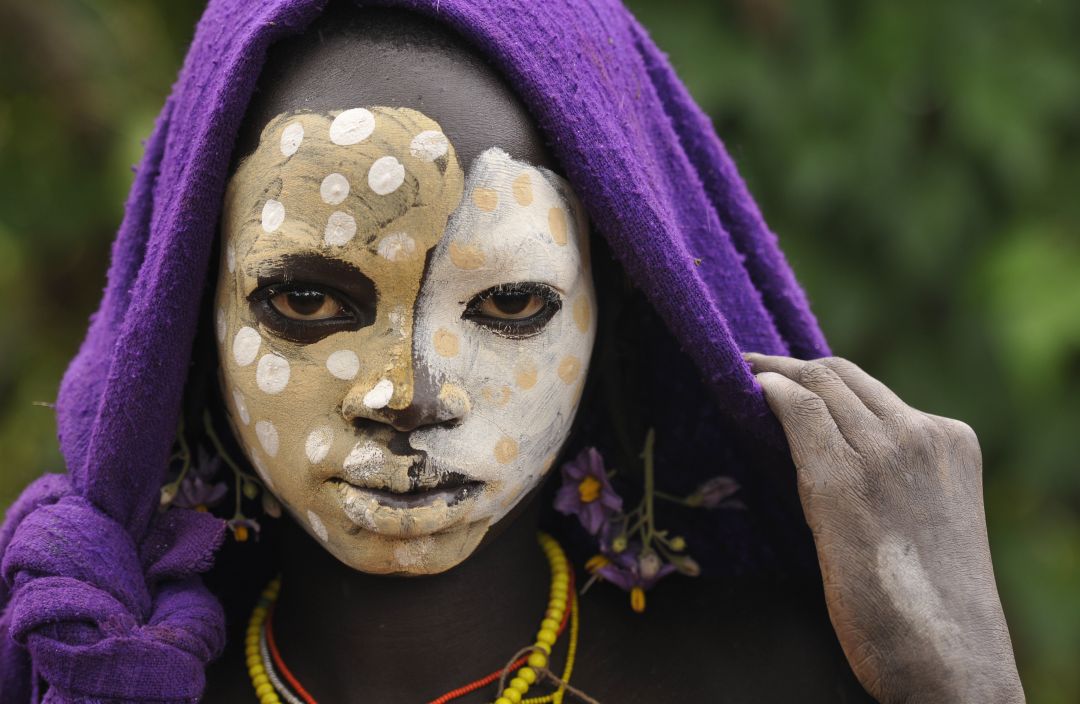

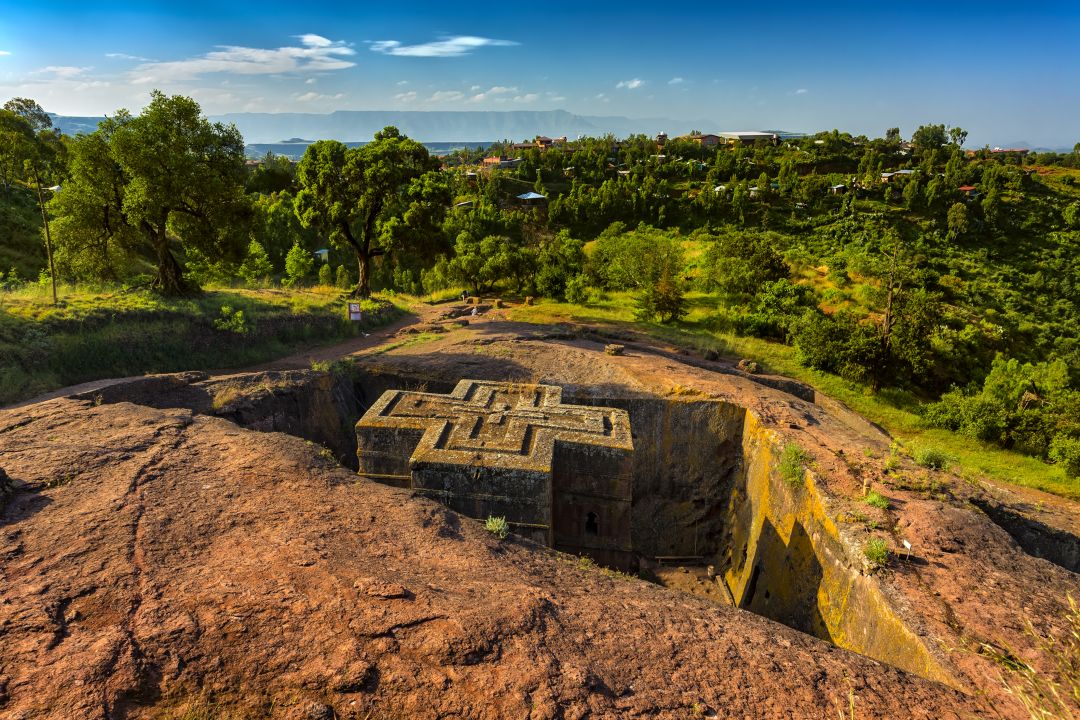






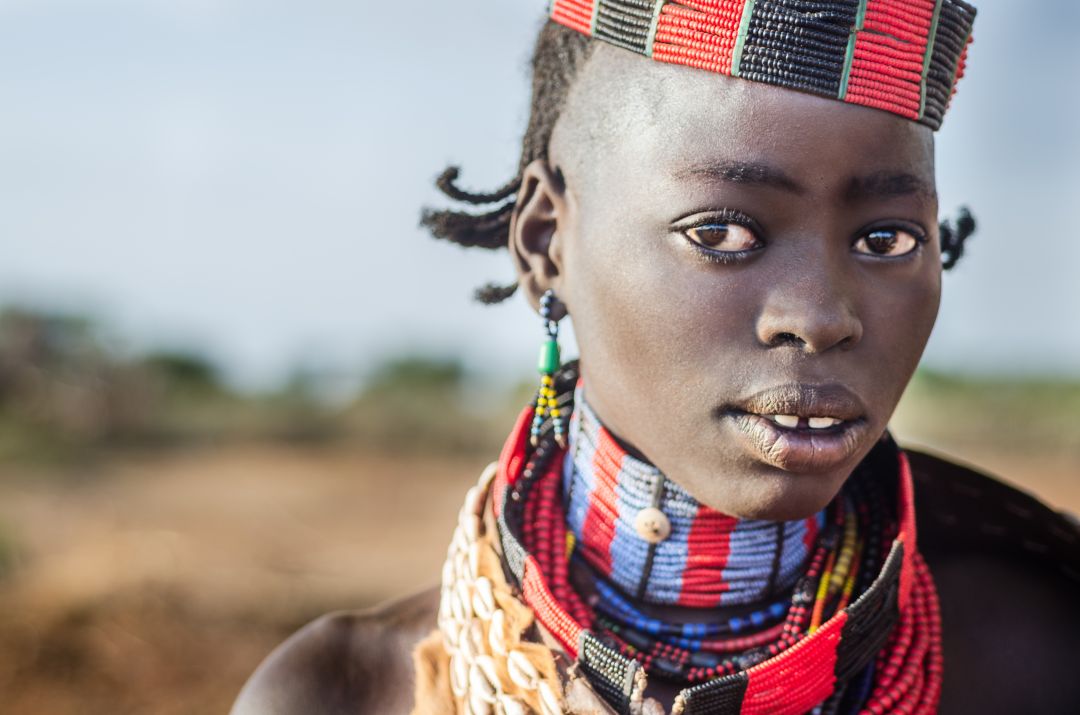





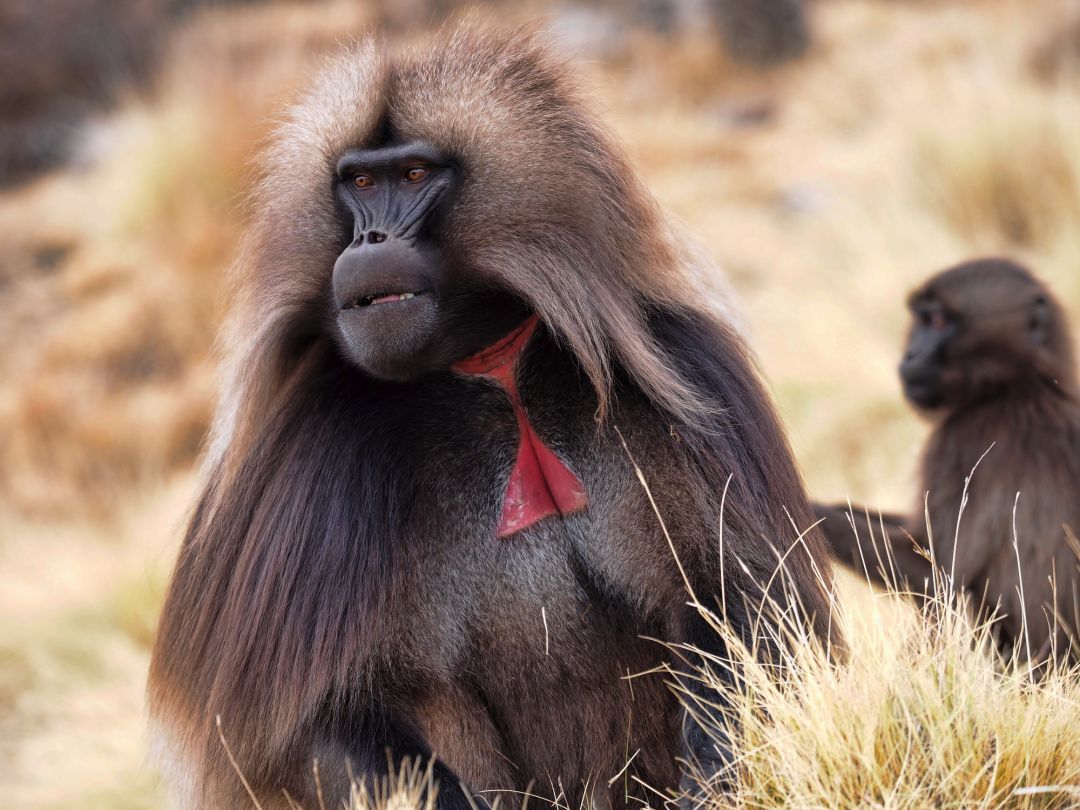
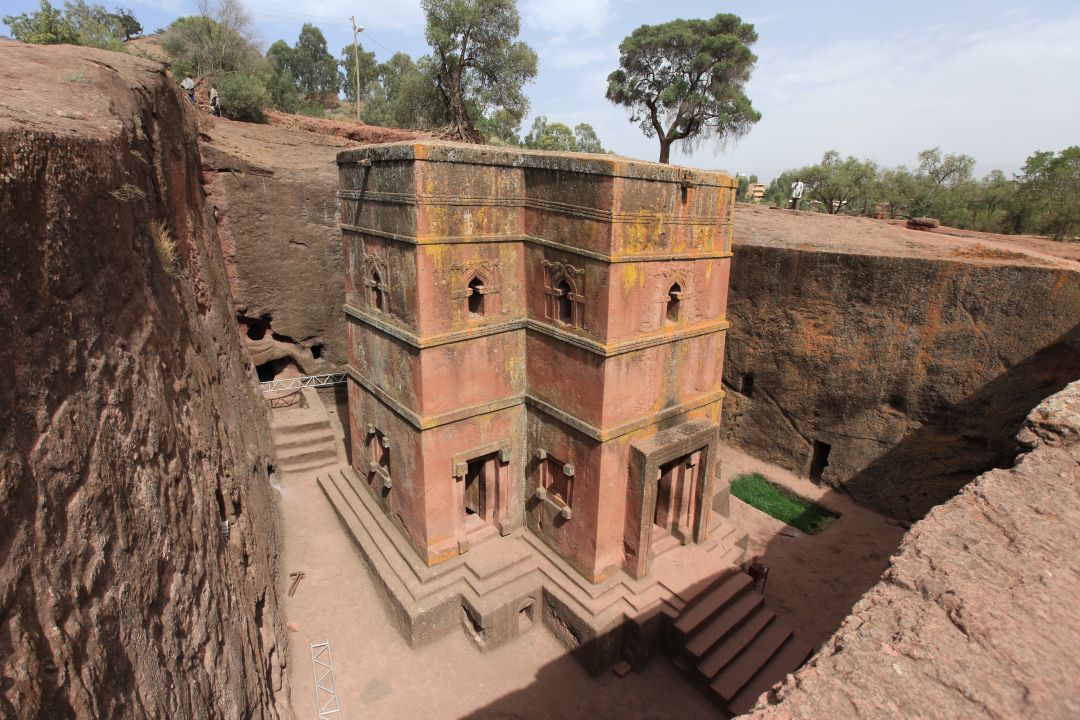
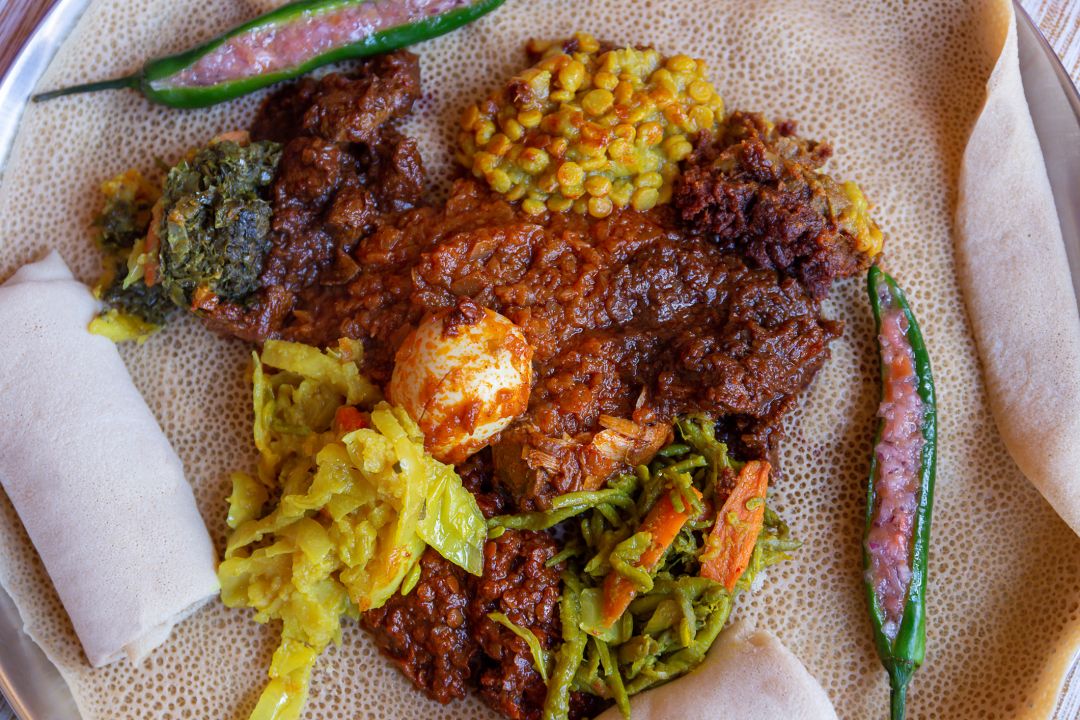
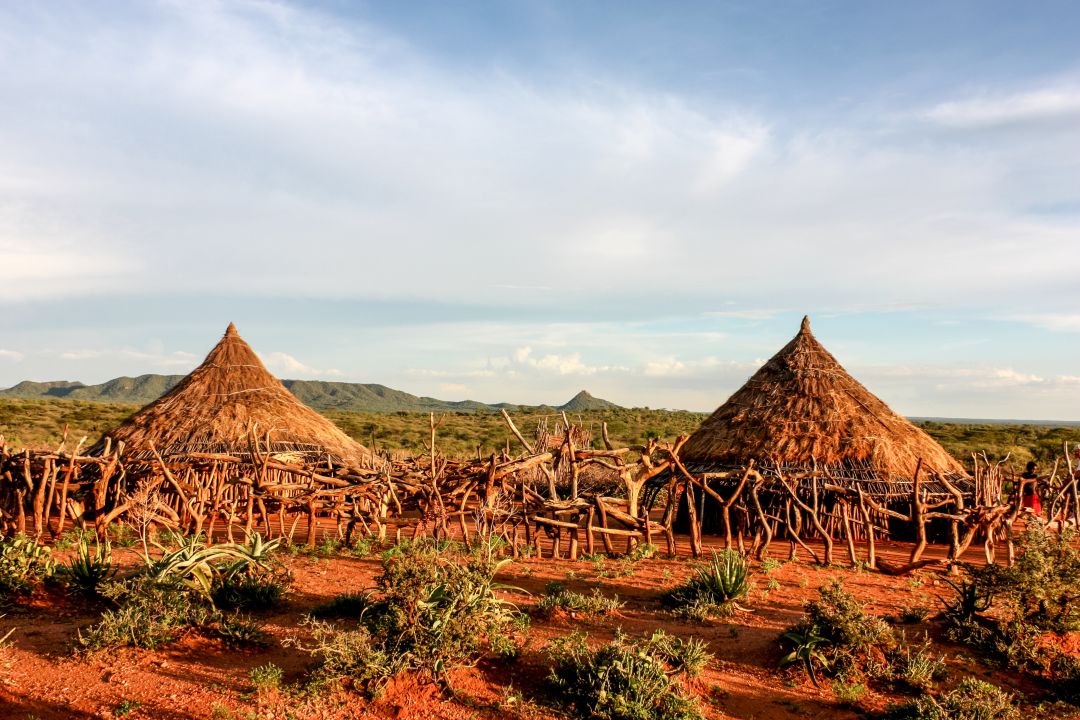
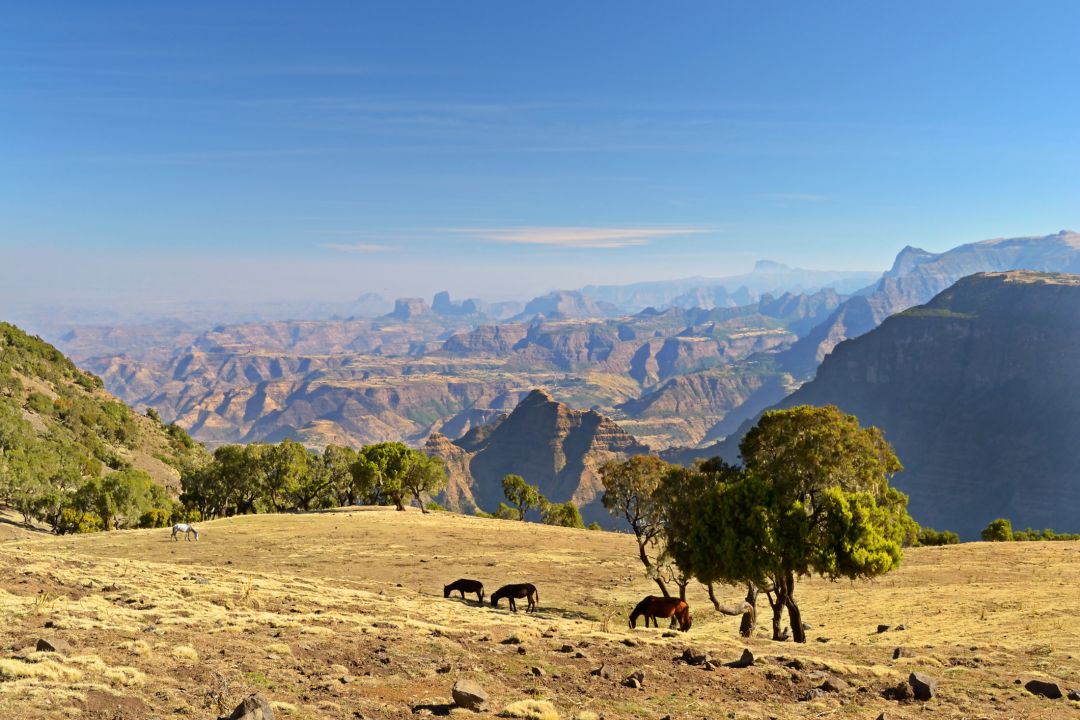
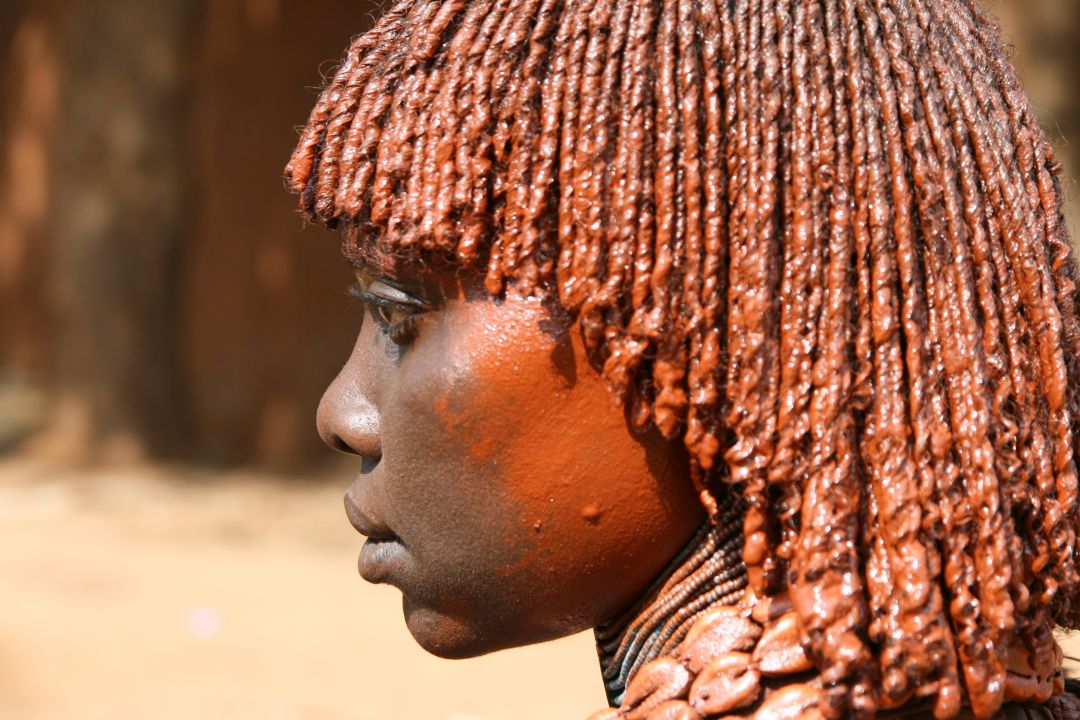
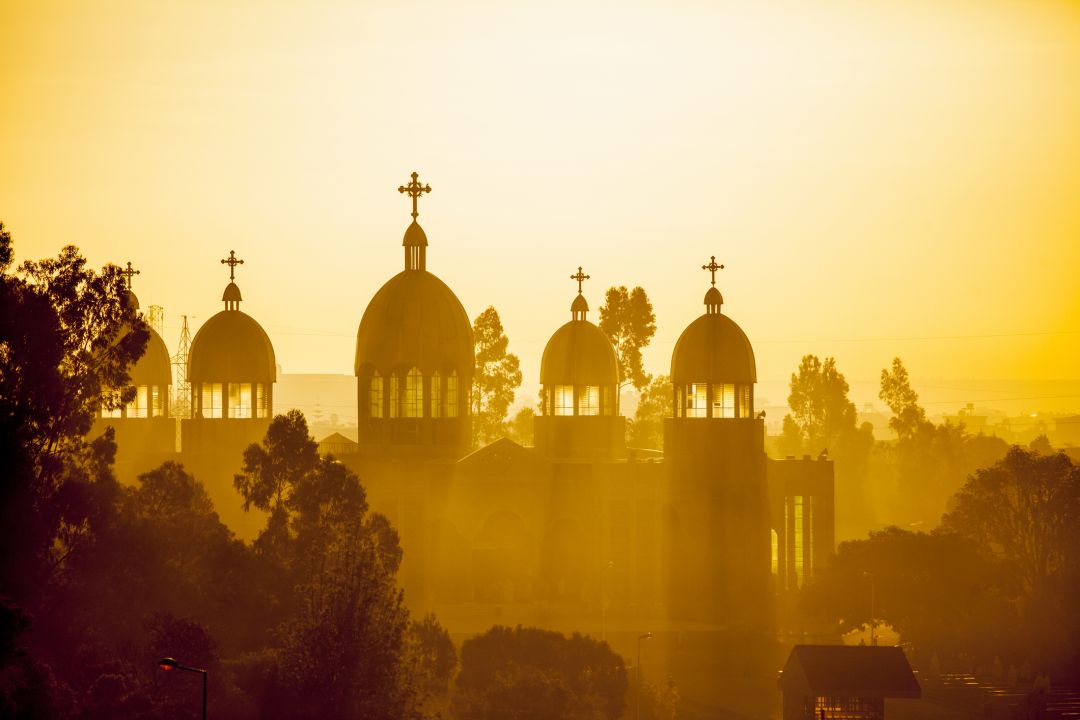


To view images fullscreen please turn device
Overview
Join us on this extraordinary adventure as we explore Ethiopia's remarkable tapestry of landscapes, wildlife, history and cultures, from the fascinating tribal lands of the south, to the captivating historical sites and rugged landscapes of the north. After a brief introduction to Addis, we first head south to one of country's most culturally rich and diverse regions - the Omo Valley, home to numerous indigenous tribes. Here we will get the chance to visit these communities, hoping to gain a ...
Join us on this extraordinary adventure as we explore Ethiopia's remarkable tapestry of landscapes, wildlife, history and cultures, from the fascinating tribal lands of the south, to the captivating historical sites and rugged landscapes of the north. After a brief introduction to Addis, we first head south to one of country's most culturally rich and diverse regions - the Omo Valley, home to numerous indigenous tribes. Here we will get the chance to visit these communities, hoping to gain a deeper understanding of their way of life, witnessing ancient traditions and learning more about modern-day challenges.
From the raw beauty of the south, we then go in search of the treasures of the north, first stopping on the banks of Ethiopia's largest lake - Lake Tana, home to ancient monasteries and the Blue Nile Falls. Further north we then reach Gonder, known as the "Camelot of Africa", and the breathtaking landscapes and unique wildlife of the Simien Mountains National Park. From here we head to the magnificent rock-hewn churches of Lalibela, and finally on to the otherworldly abyss of the Danakil Depression and the magnificent Erte Ala volcano where we will camp for the night.
This journey is not for the faint-hearted and will surely challenge the senses, but you can be sure it is also a journey which offers a once-in-a-lifetime exploration of Ethiopia's magnificent and diverse wonders, both natural and cultural.
HIGHLIGHTS
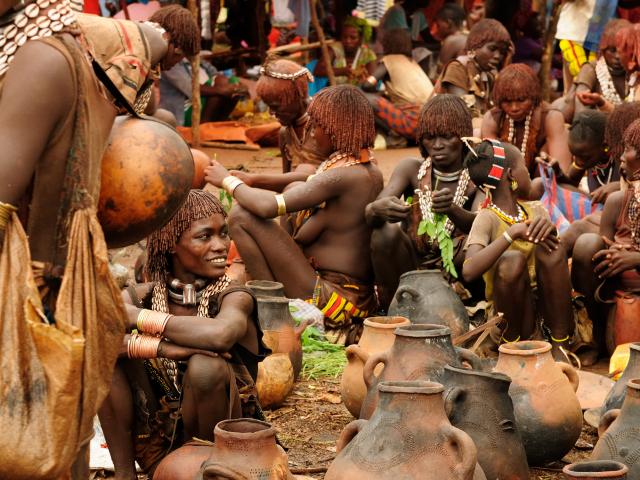



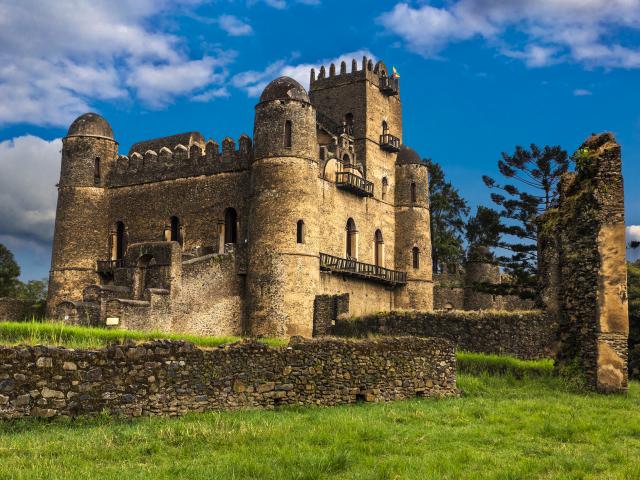

At a glance
MEALS
TRANSPORT
GROUP SIZE
EXPERT TEAM
ACCOMMODATION
ENTRANCE FEES
FITNESS RATING
WILD MILES
ACCOMMODATION
Wherever possible we aim to use characterful accommodation that enhances the overall travel experience. This can obviously vary greatly across both countries and tours. On this particular trip we will be in hotels and lodges, with two nights wild camping. Please note that the accommodation mentioned in the itinerary is intended as a guide only and is always subject to availability.FITNESS RATING
LOW: You should be comfortable walking around towns and cultural sites. May include some optional walks (typically 1-2hrs).LOW/MODERATE: May be of a long duration and/or involve numerous border-crossings. May include easy/moderate day walks (up to 2-3hrs/day). You should be relatively fit and lead a generally active lifestyle.
MODERATE: May include several easy/moderate day walks (up to 2-5hrs/day) possibly at altitude. You should be relatively fit and lead a generally active lifestyle. Previous experience of similar trips helpful.
MODERATE/HIGH: May involve several days of moderate hiking (up to 3-6 hrs/day) possibly at altitude. You must be a fit and active traveller with appropriate trekking experience.
HIGH: May involve several days of moderate/strenuous trekking (up to 4-7 hrs/day) possibly at altitude. You must be a very fit and active traveller with appropriate trekking experience.
Wild Miles Club
When you book a trip with Wild Frontiers you are awarded points, which are based on the return distance from London to the arrival city of your trip. Points are awarded for all our holidays, including both our escorted group tours and tailor-made trips. When you accrue points, you will qualify for the following discounts on all future bookings:
| Blue | More than 10,000 points | 2.5% discount |
| Bronze | More than 30,000 points | 5% discount |
| Silver | More than 45,000 points | 7.5% discount |
| Gold | More than 60,000 points | 10% discount |
Map & Itinerary
Individual departures may vary so please refer to the information in the tour specific links in the Dates and Prices section below

Day 1 Tour starts in Addis Ababa with City Tour

Day 1 Tour starts in Addis Ababa with City Tour
Meeting at our hotel this morning, there will be time to relax and freshen up before having lunch and an orientation tour around Ethiopia’s busy capital, including Unity Park and the National Museum. In the evening we’ll have an early dinner back at our hotel in preparation for the trip ahead.
Day 2 Addis Ababa – Arba Minch: Journey into the Omo Valley

Day 2 Addis Ababa – Arba Minch: Journey into the Omo Valley
Be prepared for a very long travel day and an early start, as we head south about 500kms in our 4WD landcruisers through the East Africa Rift Valley towards Arba Minch. The journey will take all day and en route we plan to visit a few sites such as the UNESCO World Heritage Site of Tiya, a stelae field, and the rock-hewn church of Adadi Maryam. In the evening we arrive to Arba Minch, located on the shores of Lake Chamo in Ethiopia's deep south, and the gateway to the diverse tribal lands of the Omo Valley and beyond. Over the next few days we will gain an insight not only into the traditions and customs of the different indigenous communities, but also learn more about the external challenges which affect their traditional way of life, and the efforts being made to help promote cultural preservation and sustainable development.
Day 3 Arba Minch: Lake Chamo Boat Trip & Dorze Village Visit

Day 3 Arba Minch: Lake Chamo Boat Trip & Dorze Village Visit
This morning we can enjoy a wonderful boat trip on Lake Chamo, an area rich in flora and fauna. One can spot many hippos and often a spectacular concentration of giant crocodiles, locally known as "Crocodile Market”. The water birds are plentiful and the scenery is truly unforgettable. We should also get a glimpse of life on the lake as we look out for locals fishing for Nile perch and many other species on their traditional boats. This afternoon we then travel just a short way outside of Arba Minch to Chencha, which is the focal point for the Dorze people. This tribe is renowned for their weaving skills and today we will visit one of their villages. Their homes, known locally as ‘ele’, are remarkable structures resembling beehives built entirely from organic materials. The design allows for natural ventilation and helps regulate temperature, with the taller homes reaching an incredible 12 metres in height.
Day 4 Arba Minch – Turmi: Konso Conservation & Local Markets

Day 4 Arba Minch – Turmi: Konso Conservation & Local Markets
Today we make our way south to Turmi, passing through the remote heartlands of the Konso, Derase, Ari, Tsemai and Banna peoples, all of which have lived here with their own traditional culture and customs for centuries. En route we visit a lively local market as well as a Konso village, where we can gain more of an insight into the Konso Cultural Landscape, now a UNESCO World Heritage Site. An example of unique land management practices, the area includes traditional terraced agricultural fields, stone-walled settlements, forest protection and grave sites of the Konso people, all of which showcase a strong connection to the land and how the community has been actively involved in conserving their environment for centuries. We arrive to Turmi in the afternoon where we will then settle in for the evening.
Day 5 Turmi: Tribal Traditions of the Karo & Hamer Communities

Day 5 Turmi: Tribal Traditions of the Karo & Hamer Communities
This morning we head to Murelle to visit the tribal villages of Kortcho, home to the Karo. Thought to be one of the most vulnerable populations of the Omo peoples, with perhaps only 1000-1500 individuals remaining, the Karo are traditionally pastoralists, and are famous for their flamboyant hairstyles and body painting. Body painting serves as a multifaceted practice, encompassing cultural, artistic, aesthetic, and spiritual aspects, and plays a vital role in preserving their cultural identity and providing a visual representation of their rich heritage. This afternoon, we then spend some time visiting a Hamer village. Thought to be descended from the ancient Egyptians, the Hamer are also pastoralists by custom and are one of the largest ethnic groups in the region. The Hamer are known for their distinct culture, traditional practices, and vibrant ceremonies, in particular the bull jumping ceremony. Known as "Ukuli Bula" in their language, this ceremony is a rite of passage for young men to transition into adulthood and marriage. The ceremony involves the young man running across the backs of bulls while naked, proving his courage and strength. It is also an opportunity for young women to demonstrate their support and show their eligibility for marriage.
Day 6 Turmi – Jinka: Key Afer Market & Mursi Village

Day 6 Turmi – Jinka: Key Afer Market & Mursi Village
Heading north once again we first drive to the lively Key Afer Market which occurs every Thursday. This market provides a platform for the different ethnic communities to come together and trade livestock, agricultural products and handicrafts, as well as take part in cultural performances and ceremonies. From here we then visit the Mursi people, renowned for their elaborate body modifications, particularly lip plates. Young girls typically have their lower lips pierced, and progressively larger clay or wooden plates are inserted over time, a practice which is considered a symbol of beauty and cultural identity. Mursi men also engage in scarification, creating intricate patterns on their bodies using razor blades. Understanding and respecting the cultural significance and uniqueness of the Mursi people is essential for visitors interested in their way of life, and our guide will be able to give us more of an insight during our visit.
Day 7 Jinka – Addis Ababa – Bahir Dar

Day 7 Jinka – Addis Ababa – Bahir Dar
We say goodbye to the south today as we fly to Bahir Dar, via Addis Ababa. Most of the day will be dedicated to travelling, but on arrival there should be some time for some initial exploration of this attractively located lakeside city.
Day 8 Bahir Dar: Lake Tana Boat Trip & Blue Nile Falls

Day 8 Bahir Dar: Lake Tana Boat Trip & Blue Nile Falls
This morning we board a boat and take a trip out on to Lake Tana, Ethiopia’s largest lake. The islands and peninsulas of Lake Tana host more than 20 monastic churches, many of them founded by Amda Tsion in the 14th century. Visit the beautifully decorated Ura Kidane Mihret Monastery located on the forested Zege Peninsula, as well as Bete Selassie which was rebuilt in 1858 and is home to beautiful paintings, despite the simple exterior of the church. On our return we then drive to Tisissat, followed by a short 30-minute walk along an uneven path to visit the Blue Nile Falls, known as Tis Abay (Smoke of the Nile). Here the waterfall plunges 45 metres down before continuing its journey to join the White Nile in Khartoum. Once one of Africa's most spectacular falls, today they have unfortunately been drastically demised due to the completion of a hydro-electric plant that diverts 95% of the water when operating, so water levels are unpredictable. A suspension bridge takes us to the foot of the falls and from here we can take a pleasant walk around the other side of the falls, before crossing back on a short boat trip across the Blue Nile to our starting point, and back to Bahir Dar.
Day 9 Bahir Dar – Gonder: Medieval Castles & Colourful Murals

Day 9 Bahir Dar – Gonder: Medieval Castles & Colourful Murals
From Bahir Dar we drive north today around the eastern edge of Lake Tana to the town of Gonder. The 185km trip takes about 3 hours and we will be able to experience the countryside away from the towns and historical sites. This afternoon we then discover the key sites of the ancient capital, including the Debre Birhan Selassie church (Light of Trinity) with its wonderful murals. We also visit the Royal Enclosure, a UNESCO World Heritage Site with its medieval castles, architecturally unique and unlike anything else found in Sub-Saharan Africa.
Day 10 Explore the Simien Mountains

Day 10 Explore the Simien Mountains
We have an early start this morning as we set off to spend the day exploring the stunning landscapes of the Simen Mountains National Park, located around 2.5hrs away from Gonder. One of the largest ranges in Africa, here we can see vaulting granite columns, towering escarpments and plummeting valleys, all home to a vast assortment of wildlife, including Gelada Monkeys, the Simien fox, bushbuck and the magnificent Lammergeyer vulture. Taking a picnic lunch with us we walk along the escarpment taking in the exceptional views and hopefully spotting some of the wildlife, before returning to Gonder in the early evening.
Day 11 Gonder – Lalibela: Rock-hewn Churches

Day 11 Gonder – Lalibela: Rock-hewn Churches
This morning we catch a flight to Lalibela, arriving late morning. This isolated town, situated high up in the Lasta Mountains, is famous throughout the world for its incredible rock-hewn churches. At 2,630m and perched among wild mountains, the setting is fantastic. From the 10th to the mid-13th century it was the capital of the Zagwe Dynasty that ruled the country and it was under the direction of its most famous King, Lalibela, that the churches were carved. He gathered together the greatest craftsmen possible and some estimate as many as 40,000 people were required to create the churches. This incredible group of monuments consists of six churches to the north and five churches to the south, and the churches are linked by a series of rock hewn tunnels similar to catacombs. After settling into our hotel and enjoying an early lunch, this afternoon we visit the first cluster of UNESCO World Heritage Site churches, included the famous church of St. George, or Bete Giyorgis, carved in the shape of a cross from the red tuff.
Day 12 Lalibela: Rock-hewn Churches & Culinary Delights

Day 12 Lalibela: Rock-hewn Churches & Culinary Delights
Enjoy a slower start this morning, before we set off to learn about the traditional methods of producing Ethiopia’s unique culinary delights. Our host will welcome us and show us how they cook typical Ethiopian food, usually a spicy vegetable and lentil stews and slow-simmered meats. They will also show us a traditional Ethiopian coffee ceremony, which is a wonderful opportunity to share in a core cultural custom of Ethiopia, which centres around socialising with relatives, neighbours and other visitors. This afternoon we can then enjoy a visit to the second cluster of staggering rock hewn churches. In the evening we'll take a trip to a tej house to sample the local liquor, followed by dinner at a traditional restaurant.
Day 13 Lalibela – Weldiya with Amhara Village Visit

Day 13 Lalibela – Weldiya with Amhara Village Visit
Today we spend most of the day driving east to Weldiya, offering a glimpse into the landscapes and rural communities of the Amhara region. En route we can visit a local village, home to an Amhara community. The Amhara are one of the largest ethnic groups in Ethiopia, speaking Amharic, Ethiopia’s official language, and have a rich cultural heritage which can be seen through their music, art, dance, clothing and cuisine.
Day 14 Weldiya – Semera with Afar Village Visit

Day 14 Weldiya – Semera with Afar Village Visit
It’s another long drive today as we make our way to Semera, the gateway to the Danakil, passing from the highlands down to the lowland landscapes. En route we stop at an Afar village where we can observe rural life in this area. Traditionally, the Afar people have been nomadic pastoralists, relying on livestock, particularly camels, goats, and sheep, for their livelihood, and moving across vast areas in search of water and grazing land for their animals. However, due to various factors such as modernization and changing climatic conditions, some Afar people have transitioned to settled agricultural or semi-nomadic lifestyles. Continuing on to Semera we settle in for the evening. Here we will obtain the necessary permission required to enter the Danakil region tomorrow.
Day 15 Semera – Ahmed Ela: Discovering Dallol
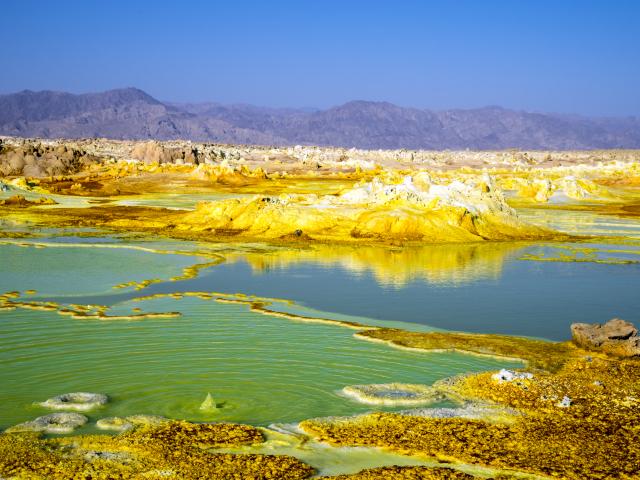
Day 15 Semera – Ahmed Ela: Discovering Dallol
This morning we will make our way northwards into the barren landscape of the Danakil Desert. All the while we will be slowly losing altitude and by the time we reach Lake Afrera we will be 100m below sea level. Continuing north to Dallol, the driving is all off road, through the desert. Dallol is like nowhere else; a bizarre landscape of colourful mineral deposits, sulphur pools and geysers, where we’ll have the afternoon to explore this seemingly alien terrain. We will also visit the striking landscape of the salt canyons, before driving to Ahmed Ela, a small settlement where the salt caravans meet before their long walk to Mekele. Here we will camp for the night.
Day 16 Ahmed Ela – Erta Ale: Volcano Adventure

Day 16 Ahmed Ela – Erta Ale: Volcano Adventure
After another chance to visit Dallol this morning, we head towards Erta Ale Volcano, which literally translates to ‘Smoking Mountain’ in Afar language. Reaching Kuswarad, an Afar village where we pick up our local guides, we then continue through the desert where we reach the basalt rock formed by old lava flows. After getting off our vehicle, we trek to the rim of the volcano at around sunset, to avoid walking during the heat of the day. The trek will take about 45-60 minutes, with the latter part of the walk taking part in the dark. The path is not that steep, but it is important everyone has a torch and sticks together. We camp on the crater rim, a safe distance away from the lava. Here we will hopefully be able to witness the volcano in all its glory, and see the beauty of its lava lake, one of only six active lava lakes in the world.
Day 17 Erta Ale – Semera – Addis Ababa
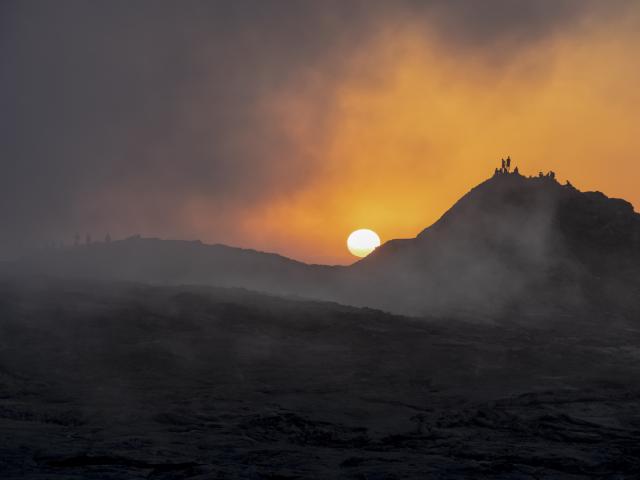
Day 17 Erta Ale – Semera – Addis Ababa
We return to Semera today to catch our flight back to Addis. Enjoy a well-earned shower at the hotel before having an evening at leisure to unwind after a busy few days.
Day 18 Addis Ababa City Tour & Departure
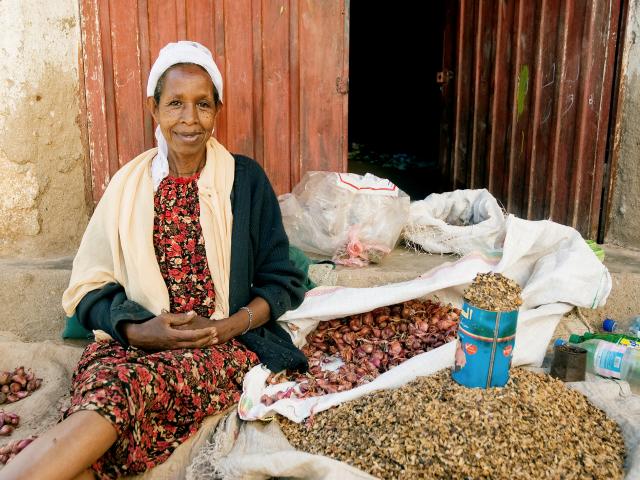
Day 18 Addis Ababa City Tour & Departure
Enjoy a free morning to relax at the hotel or explore independently at leisure. After checking out of our hotel, we will then meet for a late lunch, followed by an afternoon exploring more of the city, including the Ethnological Museum - located in the former Emperor Haile Selassie's palace grounds, and the Merkato - the largest open-air market in Africa. We can also pay a visit to the church of the Holy Trinity, which houses some stunning stained glass windows, and whose dome is a prominent landmark in the city. After our final dinner, what better way to end our adventure than listening to some mesmerising Ethio-jazz at one of the city hotspots. Those on the suggested group flight will then be transferred to the airport late this evening.
ACCOMMODATION USED ON THIS TOUR
Capital Hotel And Spa, Addis Ababa
Offering very good quality within the capital, Capital Hotel and Spa is a great option for exploring the city. The 120 rooms and suites feature modern amenities and styling to ensure a comfortable stay. Some rooms have the addition of a balcony, jacuzzi bath and dressing room. For some of the best views of the city, often accompanied by live music, visit the Skyline Bar and Lounge. The restaurants will transport you around the world with a varied menu, whilst the pastry shop provides sweet treats and flavours. To lull you into a state of luxurious tranquillity, visit the Wellness Centre, featuring a Spa, pool and gym.
Haile Resort Arba Minch, Arba Minch
The Haile Resort Arba Minch is a fantastic resort option when travelling to the south of Ethiopia or exploring the Lake Hawassa. The resort boasts a grand view overlooking the twin lakes of Abaya and Chamo which is best enjoyed from your room or suite. The resort has everything you may want including three bars, a gym, sauna, tennis court and volley ball court. There are great facilities for families with connecting rooms, a children’s playground and mini-golf. The best feature of the hotel has to be the infinity pool with the Hawassa Lake Skyline as the backdrop.
Buska Lodge, Turmi
Tucked away just outside of the remote outpost of Turmi, Buska Lodge is the most comfortable spot from which to explore this stunning part of the Omo Valley. Bedrooms are all found in individual rounded huts or "tukuls" as they are known locally. The beds are draped in full-length mosquito nets and fans are provided for guests' comfort. The en suite bathrooms have hot running water and flush loos, although the hot water is restricted to certain times of day. Each tukul has a small sun terrace at the front where guests can relax and watch the sunrise. There is a lovely restaurant at the lodge which serves a variety of local and international cuisine. The lodge also has a campsite attached. The staff here are very friendly and the lodge works with a number of the local Hammer Villages to ensure that the locals benefit directly from the tourists that the lodge draws to the region. A great spot from which to explore Turmi.
Eco-Omo Safari Lodge, Jinka
This charming eco-lodge is located just outside of the town of Jinka, in the heart of the Omo Valley and within a short drive of Mago National Park. Set within lush gardens, there are 20 tents, stilted on wooden platforms and covered with a reed roofs to blend into the natural environment. Each tent has either twin or a double bed and en suite bathrooms offer hot and cold running water. At breakfast, fresh fruit juices from the garden, banana bread, and milk and cheese can to be enjoyed with the most famous Ethiopian (Sidama) coffee freshly roasted and ground from the lodge's own plantation. Lunch and dinner have an Italian focus, with much of the produce grown on the farm or in the nearby area.
Blue Nile Resort, Bahir Dar
A smart, modern hotel on the shores of Lake Tana, the Avanti Blue Nile Falls Hotel is an excellent option for your stay in Bahir Dar. The bedrooms are all relatively small, but very comfortable and boast the rare luxury of air-conditioning as well as flat screen TVs, en suite bathrooms and balconies which look out towards the lake. There are two restaurants at the hotel which serve a variety of Ethiopian and Western dishes, a smart bar and terrace looking out towards the lake. All in all, this is one of the smarter options in Ethiopia and one of the few options outside Addis Ababa with air-conditioning and a choice of restaurants
Goha Hotel, Gonder
The Goha Hotel stands at the crest of a hill about one kilometre from the town centre, with a commanding view of Gonder and its enchanting and mysterious castles. The best hotel in the Ghion chain, this three star property offers 66 comfortable bedrooms which are simply decorated in traditional local style. There is a decent restaurant serving a mix of local and international food, a bar and terrace with lovely views and a shuttle that takes guest into and out of town. Whilst the bathrooms are tired (this is true of almost all hotels in Ethiopia), the views are wonderful and makes the Goha one of the best options in town.
Maribela Hotel, Lalibela
Maribela is Amharic for Lalibela and this hotel offers a great location on the escarpment with fabulous views. Guest rooms are simple yet comfortable with en suite facilities. The staff are very friendly and welcoming and there is a great local restaurant serving breakfast, lunch and dinner, whilst the bar terrace is a fantastic spot to sit back, relax and take in the stunning views. Definitely one of our favourite options in Lalibela.
Hotel Rating
Hotel Rating
Hotel Rating
Hotel Rating
Hotel Rating
Hotel Rating
Hotel Rating
Accommodation displayed here should be taken as a guide only. *Please refer to the Detailed Itinerary of your individual departure for more information.
PRIVATE HOLIDAYS: DATES DON’T FIT?
All group tours can be taken on a private basis.
Additional Details
Responsible Travel
With local people, culture and eco-systems in mind, responsible travel and sustainable tourism are at the core of Wild Frontiers. We believe that a successful trip not only delivers a unique and unsurpassable journey for our travellers but also benefits the people and places we visit.
When designing our tours, we actively seek out experiences that have a positive impact on the communities and precious environments we visit - from supporting social enterprises; resting our heads in rural homestays; and eating at locally owned restaurants; to helping fund conservation projects that protect wildlife and their habitats.
Visit the Responsible Travel area of our website to read more, including the work of the Wild Frontiers Foundation through which we fundraise to aid community empowerment and education projects.
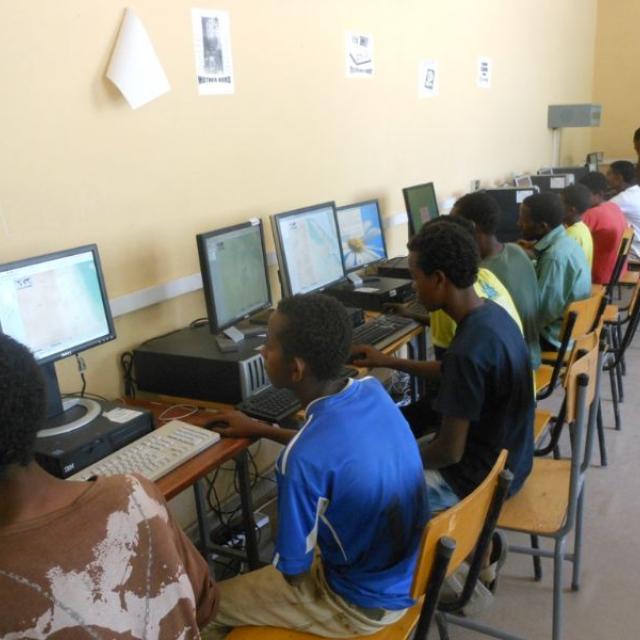
Supporting Education in Ethiopia
The Wild Frontiers Foundation is proud to support Camara Education, an international charity and social enterprise that uses recycled technology to deliver 21st century skills to improve education in disadvantaged communities around the world.
The Wild Frontiers Foundation has funded the installation of computer classrooms - 25 recycled computers, loaded with educational software - in three schools in Ethiopia. Teachers from the schools are also trained in basic digital literacy skills, simple hardware maintenance and how to use the computers to teach various subjects.
With access to this technology, students are learning new skills to improve their education and ultimately gain better future employment.
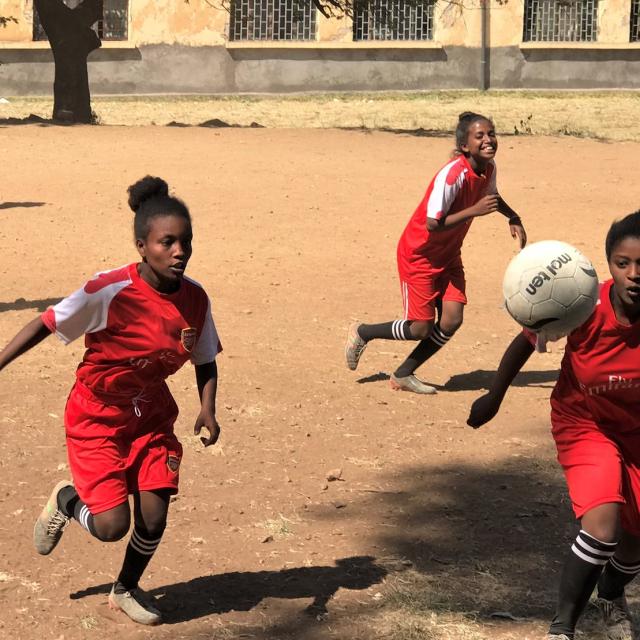
Promoting Gender Quality
Wild Frontiers is sponsoring the Gonder Girls’ Football Team. The team initiative, set up by partners Link Ethiopia, promotes gender quality, builds confidence, and develops the leadership skills of girls aged 13 to 16. Training twice a week, it also provides opportunities for girls to move beyond the limitations of traditional gender roles in a fun, safe environment and develop a supportive network of friends, while improving their physical fitness.
The programme also runs regular sessions for the 20 girls on puberty, sexual health, family planning, and the right over their bodies, along with providing menstrual hygiene management kits.

Support for the Omo Valley communities
The tribal communities in the Omo Valley face numerous challenges, including rapid modernization, land displacement, climate change and limited representation in decision-making processes. Through responsible tourism practices, we can help preserve cultural heritage and promote sustainable development, which in turn can help secure land rights and empower these communities to more effectively address their needs. Respectful engagement is vital, allowing us to gain a deeper understanding for local traditions and customs and help foster positive cultural exchange.
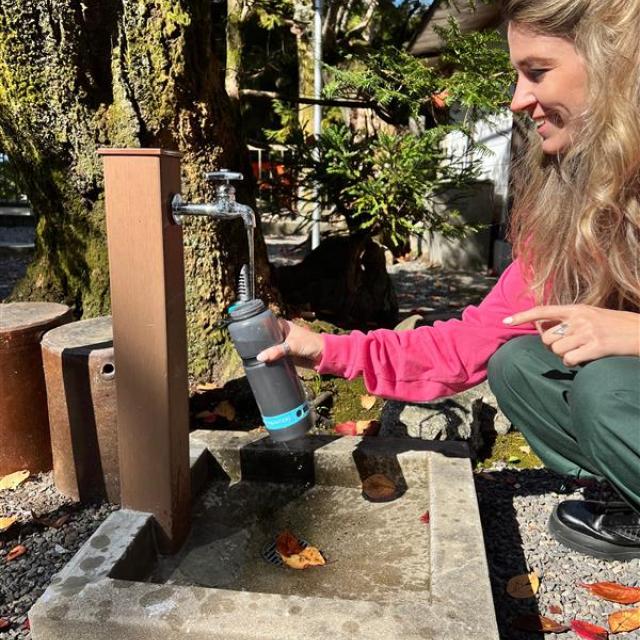
Reducing Single Use Plastic
We recognise the environmental issues and challenges around single-use plastic in many countries we visit and are actively working with our partners on the ground to reduce plastic waste on our tours and within the hotels and restaurants we visit. You can help to reduce your personal plastic waste by taking a refillable, filtered water bottle with you on your trip. Filtered water bottles can be refilled from water sources including your hotel room and restaurant taps, drinking fountains and refill stations. Every time you refill your bottle without the use of single-use plastic, you will be helping to reduce waste and protect the environment. Filtered Water Bottles | Wild Frontiers (wildfrontierstravel.com)
Supplementary Information
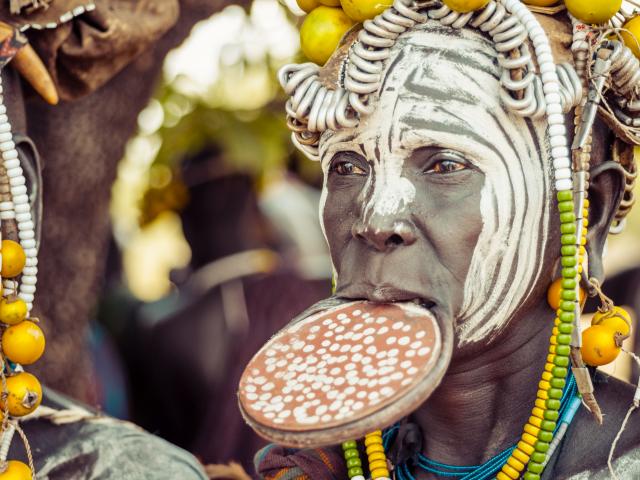
The Omo Valley & Photography
The Omo Valley is not an easy place to visit, even for the most experienced of travellers. Over the years tourism has been allowed to develop there without much thought for the local people. With the best will in the world, no one tour group or tour company is going to be able to “undo” years of bad habits but by having an understanding of the issues and focusing on market days we at least hope this trip will be able to offer a more satisfying experience for both clients and the locals. However please come prepared for an experience that will undoubtedly be memorable but may also prove challenging at times. It should also be noted that photography is one of the only sources of currency for the people in this remote part of Ethiopia and payment will be expected for photographs taken in each village. Your tour leader will be able to advise on the relevant etiquette during your time in the Omo Valley.Getting There
If you would like us to send you a quote for the suggested tour flights or on any alternative flight that may suit you better, please let us know, noting that for our US clients, we will most likely refer you to one of our preferred partners. For this trip our suggested flights from the UK (subject to change) are shown below.
If you wish to arrange your own flights you are completely free to do so and in this case we can arrange any transfers or supplementary accommodation that you may require. However please note that if you are planning on making your own flight arrangements, we recommend that you first check with us to see if the trip is guaranteed. We then suggest that you purchase flights that are flexible and ideally refundable as due to the nature of adventure travel, itineraries and destination accessibility can change at any time. For more information, please refer to our booking conditions.
| Flight Code | Departing | Arriving |
|---|---|---|
| ET 701 | London Heathrow (LHR) 21:00 | Addis Ababa Airport (ADD) 07:00 |
| ET 700 | Addis Ababa Airport (ADD) 01:35 | London Heathrow (LHR) 06:35 |
Visas & Vaccinations
VISAS
Visas are necessary for many of the destinations we travel to and while we aim to provide you with the most up-to-date information, requirements frequently change and as such for the latest advice we advise that you check with the relevant embassies or contact a reputable visa agency. More details can be found here - https://www.wildfrontierstravel.com/visa
For this tour UK passport holders currently require a visa for Ethiopia, which can be obtained as an e-visa.
Passports should ideally be valid for a minimum period of 6 months from the end of your tour.
Non-UK passport holders or non-UK residents should contact the relevant embassies for individual requirements.
VACCINATIONS & ADDITIONAL TRAVEL REQUIREMENTS
A Yellow Fever vaccination certificate is a mandatory requirement for travellers arriving from, or transiting through, a country with risk of yellow fever transmission.
For all destinations, please make sure you are up-to-date with any standard vaccinations (e.g. MMR, Hepatitis A, Tetanus) as recommended by your local health care provider.
Malaria is present in some parts of Ethiopia and precautions are essential.
For the most up-to-date information on all vaccination requirements and the most suitable anti-malarial tablets, we strongly suggest that you seek advice from your local travel centre or consult an official travel health website such as www.fitfortravel.nhs.uk or www.travelhealthpro.org.uk
Covid Testing: No mandatory testing is currently required for vaccinated or unvaccinated travellers.
If necessary further details will be sent out to you upon booking, however ensuring that correct and valid visas & vaccinations are obtained remains the sole responsibility of the client.
Extensions
If you have more time available, why not arrive early to adjust to a new time zone or just to get a feel for the country before your tour starts? Alternatively, you might choose to allow a few extra days after the tour to relax or to undertake some further exploration.
The choice is completely yours and we can usually arrange anything from simply additional accommodation and transfers to full tailor-made itineraries*. Please contact the office for more details and to discuss your requirements.
*Please note bespoke, tailor-made itineraries need to be a minimum of 7 days and we can only offer them in countries where we have a tailor-made expert
Governmental Travel Advice
Many governments issue advice which highlights potential hazards their citizens might experience when travelling abroad. We strongly suggest you refer to your country’s particular advisory site before booking and contact us if you have any queries or concerns. Click to follow links to the advice of the British Foreign, Commonwealth & Development Office (FCDO) or the US State Department.
Non-UK citizens should consult the travel advice of their respective governments.
Warning
The FCDO advises against all but essential travel to much of this itinerary, however please note that this information is subject to change.
Wild Frontiers has many years’ experience of running trips which contravene FCDO advice but these decisions that are never taken lightly and are always taken in conjunction with our local partners after extensive consultation. As part of the booking process, you will need to sign a disclaimer to confirm you have read the advice, that you are still happy to travel and that you will obtain travel insurance which is not invalidated by the FCDO advice.
For more information, please see the Insurance section or contact us. Non-UK clients should be sure to check the travel advice of their own governments as well as the small print of their insurance policies. Should you have any questions or concerns, please don’t hesitate to get in touch.
Key Information
CLIMATE
Throughout most of Ethiopia, February and October represent transitional periods between wet and dry seasons.
The weather is typically mild with warm days and cool nights, and you can expect some rain. In the north, temperatures can range from around 20 to 25 degrees Celsius during the day, and cooler temperatures at night. In the south, you may experience warmer temperatures, with daytime temperatures ranging from 25 to 35 degrees Celsius, with relatively cooler nights.
The Danakil Depression is one of the hottest places on Earth so please come prepared. Our trips to the Danakil run from Oct - Feb as this is the cooler time of year but this can still mean daytime temperatures up to and around 40C. Night time temperatures in the Danakil are in the 20s (C) and rainfall is very rare.
IS THIS TRIP FOR ME?
It may sound obvious but Wild Frontiers tours are not always for everyone and it is important to us that the tour you choose is the most suitable. All our tours have a fitness rating as a guideline but you should check the day-by-day itinerary carefully. In certain instances we may ask you to complete a travel questionnaire before confirming your booking in order to ensure your suitability. Should you have any concerns about your ability to partake in any aspect of the tour then please contact the office.
KEY ASPECTS TO CONSIDER
Anyone in a good state of health, reasonably fit, with an open mind and a big sense of adventure should be able to cope with this tour. However, please note that there will be some long days in the car and when visiting some of the sights you will be on your feet walking around. In addition, the camping will be very basic with no facilities and at times, especially when at Erta Ale, the temperatures may be very hot! During days in the Danakil, temperatures can exceed 40C so you must be able to cope with extreme heat.
Please note that if it become logistically viable in the future to include the historic site of Axum, we would endeavour to do so in lieu of the current two travelling days between Lalibela and Semera.
Due to the ever-changing nature of the volcano and the region, the visibility of the lava lake and lava flows may vary. Please contact the office for the current situation and up to date information.
Please be advised that on this trip vegetarians can be catered for but the selection and variety may be limited. Other dietary requirements may be very difficult to provide for, but that said we will do our best.
THE NATURE OF ADVENTURE TRAVEL
We feel that it’s worth pointing out that while we will always strive to stick as close to the stated itinerary as possible, it may be necessary from time to time to make changes to our itineraries or services (due to weather, political and religious influences etc.) and this can happen with little or no notice. This unpredictability can be one of the most exciting aspects of adventure travel and for many of our clients often leads to unexpected highlights as the tour-leader necessarily adapts the tour to the changing conditions. However we are aware that this lack of assuredness may not suit everyone. As such, with the greatest respect, if you are someone who needs to know that everything will happen exactly as planned, we would kindly suggest that perhaps our tours are not for you. Adventure travel can be infectious and once you’ve caught the bug, it is likely to never leave you, but especially if this is your first such tour we would strongly urge you to give us a call if you have any concerns whatsoever about your suitability for this trip.
TRAVELLING SOLO AND SINGLE SUPPLEMENTS
As a company approximately 70% of our clients are solo travellers, so it’s very unlikely you’ll be alone!
Our prices are typically based on twin-share accommodation but single supplements are not compulsory for any Wild Frontiers tour. If you prefer not to pay a single supplement we’ll pair you with someone else of the same sex for you to share with throughout the trip. On this trip, if you do opt to pay for a single supplement then please note that it will cover you for all nights of the tour, including camping nights.
Please note that paying a single supplement entitles you to lone occupancy of a single room. In many cases these rooms will be of the same size as a double/twin room, but in some cases they may be smaller.
INSURANCE
Insurance that provides cover for emergency repatriation in case of a medical emergency is compulsory for all tours. You should be aware that due to some of the geographical areas visited and some of the activities included on certain of our trips some standard insurance policies may not always provide adequate cover. As such we strongly recommend that you purchase a policy that adequately covers your trip. Please see the Insurance section for more details.
General Information
TOUR PRICE
All our tours are priced on a land-only basis, giving you maximum flexibility when deciding how to get to and from your tour.
DEPOSIT
A 10% deposit is required to confirm your booking.
PROTECTION FOR YOUR MONEY
For further details please see our travelling with peace of mind page
WILD MILES
This tour will earn you 7318 Wild Miles
WHAT'S NOT INCLUDED
We believe in a completely transparent approach to pricing with no hidden extras. As such, please note that the following are not included in the cost of the tour.
Visas & Travel Insurance: Visas will always be tour/nationality dependent but travel insurance is mandatory
Tips: Always optional but some guidance will be given in the pre-departure information documents
International Flights: Please ask us for an obligation-free quote for flights which originate in the UK
Airport Transfers: We include complimentary transfers if arriving/departing on the suggested group flights
Beverages & any costs of a personal nature: This will include items such as laundry and souvenirs
WILD FRONTIERS COMMUNITY
If you’re still not sure if this trip is right or just want to see get some different perspectives, then why not have a look at the wide variety of resources we have on our website? Browse our community section to read our blogs, watch videos and find out about our events.
WHY WILD FRONTIERS?
We are frequently asked what makes Wild Frontiers different from other tour operators. Visit our Why Wild Frontiers page to find out.


